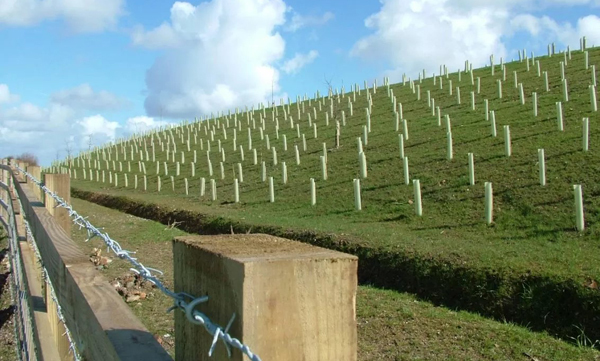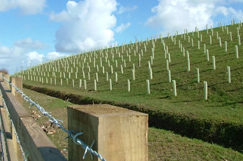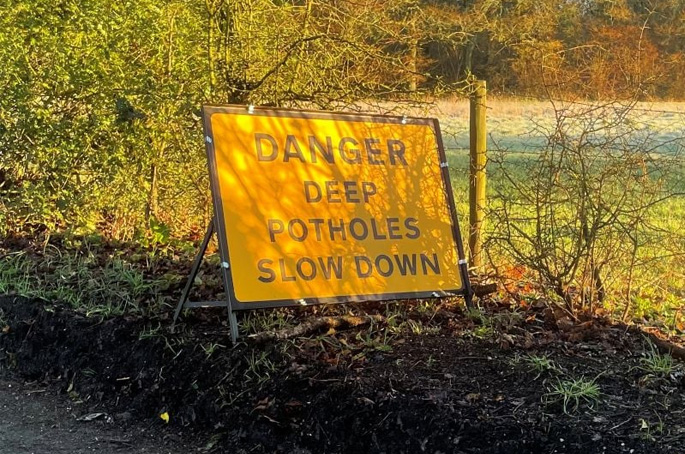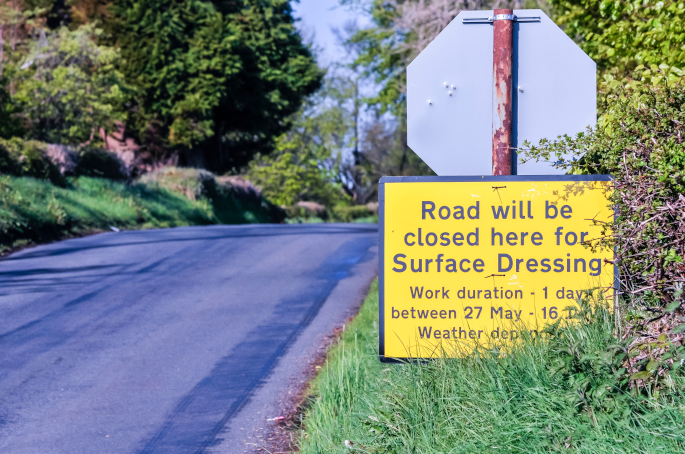Recent stories of half a million dead saplings along the nation's highways have called into question how contractors handle such ambitious tree planting projects. Peter Stevens of Tubex, a leading tree shelter manufacturer, details best practice when it comes to tree planting and outlines some of the considerations that need to be made to ensure planted saplings survive and thrive into maturity.
Everybody seems to be planting trees these days, from local charities to national infrastructure projects such as HS2. Given the urgency of action required to mitigate the effects of climate change, this is unsurprising, and the contractors tasked with the construction and maintenance of the UK's roads are no exception.
With National Highways recently announcing significant investment into high-quality sapling supply, the sector is seemingly serious about planting trees. However, many roadside planting projects have experienced catastrophic failure rates, with the now infamous A14 upgrade being a particularly painful example.

Arboreal disasters such as this demonstrate that tree planting best practice isn't always being followed, resulting in wasted resources and angry taxpayers.
While each planting project comes with its own unique set of conditions and challenges, which must be understood, here are some general principles to be aware of to ensure that the saplings you plant survive and thrive into maturity.
Timing is everything
The best time to plant is during the winter months from late October to early March.
Most trees go dormant during these colder months, which in turn helps to insulate saplings from the stresses and potential damage caused during transportation and replanting.
Planting out of season is possible with the use of cell-grown saplings. However, these are more expensive, and not suitable for clay-heavy soils and planting ‘in season' is still recommended.
Understand your location
There is a huge range of environmental factors that must be understood before moving forward with planting such as local climate patterns, soil conditions, drainage, moisture and air pollution levels to name just a few.
Some of these you will already be aware of as part of delivering a road project, but it's usually worth having qualified arboriculture professionals visit the site to ensure that you have all the necessary information.
This information is critical to the success of any planting scheme as it will reveal the challenges and requirements of a particular location – and the necessary measures to put in place to maximise survival rates.
Species selection
Once local conditions are understood, you need to select the right tree species to source for your project.
As previously stated, this will depend on site conditions but generally speaking, species such as field maple, silver birch and hawthorn are commonly selected for transport corridors due to their air pollution resistance.
Species selection is a surprisingly deep and sometimes controversial topic, with frequent and often heated debates over the merits of coniferous vs deciduous, native vs non-native as just two examples – much too deep to cover here, so we could recommend consulting with an expert if you are in doubt.
For the curious, however, more information on species selection and the principles behind it can be found on the Tree and Design Action Group website.
Protect your saplings
A sapling faces many risks during its early years such as temperate extremes, droughts and animal browsing.
Without appropriate protection measures in place, saplings can experience failure rates of up to 70%, so it is vital to insulate your young trees from as many risks as possible. Tree shelters, sometimes also called tree guards, are a well-understood and well-established means of protecting large scale planting projects from these risks.

Some vital elements to the use of tree shelters need to be considered such as responsible end-of-life plans, material choice and shelter heights. End-of-life planning has been historically poor across the forestry and civil engineering sectors and public attention is increasingly aware of a legacy of uncollected shelters left in-situ, often in a very visible fashion when it comes to roadside verges.
Dedicated tree shelter recycling schemes such as the Tubex Collection and Recycling Programme exist to help contractors put in place responsible disposal measures to ensure that the local environment remains clear of waste – with on-site collection or free-to-use recycling hubs available throughout the UK.
End-of-life planning and sustainability concerns also inform material choice. Tree shelters are usually offered in two forms: recyclable and biodegradable. Generally speaking, polypropylene (PP) tree shelters manufactured with recycled content and recycled at the end of use are the lowest impact tree shelter solution and thus the option we recommend. However, in hard-to-access locations or where collecting used shelters isn't feasible, we would recommend using biodegradable shelters.
The height of the shelters you specify is also something to be aware of from a material usage standpoint. Tubex shelters are available in heights ranging from 0.6 to 1.8 metres in response to different animal browsing threats from voles to red deer. It goes without saying that if rabbits are the main risk factor and deer are non-existent, then a 1.8-metre shelter might be overkill.
Maintenance, maintenance, maintenance
Understanding the need for care and maintenance is perhaps of the most importance for contractors. It may have been that saplings were perceived as yet another item to install, similar to fence posts, and the necessary aftercare was not factored into plans for the project.
Obviously, this isn't right because saplings, similar to anything you would plant in your own garden, require a certain amount of care and attention, especially while they are maturing. It is recommended to water new saplings for their first two years until they establish themselves and can survive potential dry spells.
This has been a particularly painful lesson for organisations such as National Highways who have committed to an extensive remedial planting plan along the A14, part of which includes significant aftercare measures. Roadside pruning and tree management are already within the remit of National Highways and local authorities and care for newly planted saplings should be added to these existing responsibilities.
Lessons learned, saplings saved
Contractors taking up the mantle of woodland creators is a relatively new phenomenon - at least at the current scale - and teething troubles are to be expected as organisations build their knowledge and skill base.
The need for new trees is likely to only increase over the coming years as the need for carbon capture and the importance of biodiversity becomes ever more ingrained in national infrastructure planning.
Hopefully, with these lessons in mind, contractors can plant trees that will last for decades or even centuries to come.
































